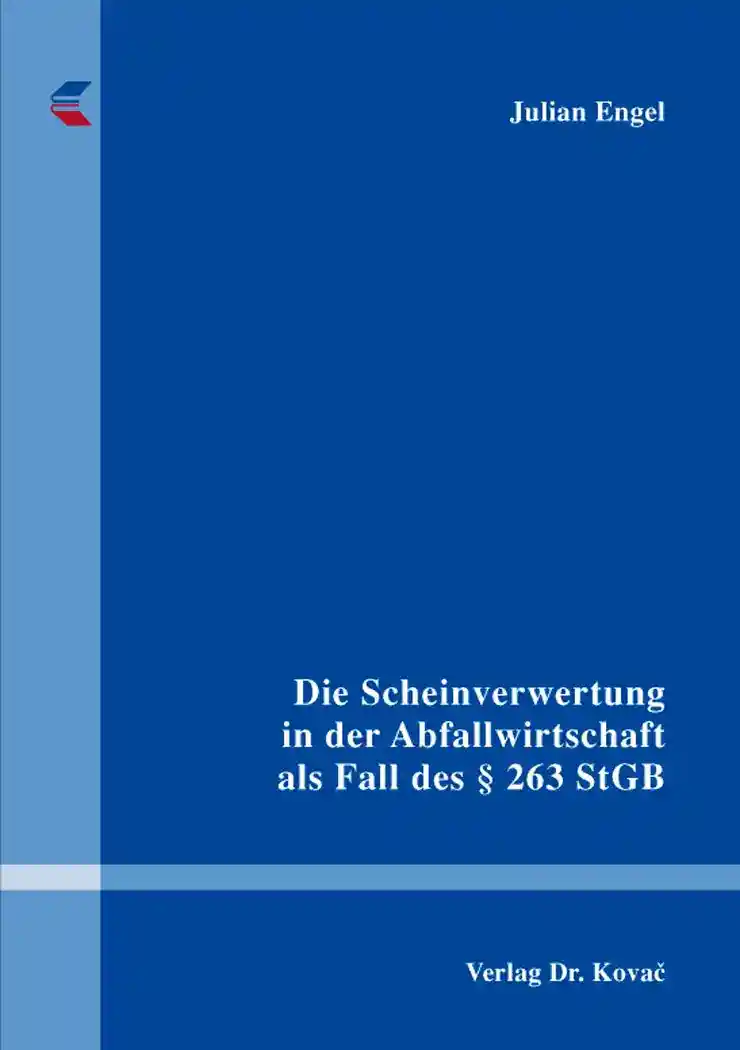Julian EngelDie Scheinverwertung in der Abfallwirtschaft als Fall des § 263 StGB
Studien zur Rechtswissenschaft, volume 374
Hamburg 2016, 372 pages
ISBN 978-3-8300-9073-1 (print) |ISBN 978-3-339-09073-7 (eBook)
About this book deutschenglish
Waste materials have ceased to be „worthless goods“ and have become, in times of dwindling resources, more and more interesting for a lot of companies. At the same time, waste industry „traditionally“ contains a high potential for crime when the relevant materials are not disposed of in line with the applicable legal stipulations but by means of waste shipment and disposal “outside the spotlight”.
This work deals with the question of whether individual businessmen may become guilty of fraud (§ 263 StGB/German Criminal Code) if they fail to properly – i.e. in line with the legal requirements – dispose of their waste materials. In this context, it has become evident that, above all, the African continent has turned out to be the number one destination for illegal transports of waste. This is due to the lack of control by the relevant local authorities, on the one hand, and to the – so far - missing awareness of the (African) people with respect to the hazards of illegal waste disposal, on the other hand.
Apart from the standards aiming at the protection of nature, fraud as per § 263 StGB also has to be drawn into consideration based on the fact that, in many cases, the disposer agrees upon a price for the disposal which actually is much too high for the activities undertaken. In order to make the disposer liable of defrauding the original waste producer and, as a consequence thereof, of prosecution the interplay of a series of conditions has to be fulfilled. This is what makes this subject so exciting. Apart from national legal specifications, those arising from legal acts of the European Union – which become more and more important before the background of a Europe growing closer together – have to be taken into consideration as well.
An extra section of this work deals with the hazards caused by waste for the environment and for people’s health. In this context, the chemical element of mercury, which until a few years ago was diversely used, is in the focus of attention. This is due to the fact that waste containing mercury represents a considerable safety hazard because of its toxicity and (alleged) property of being carcinogenic.
Keywords
AbfallverbringungAbfallwirtschaftBetrugQuecksilberRechtswissenschaftScheinverwertungToxizitätUmweltrechtVermögensschaden§ 263 StGBIhr Werk im Verlag Dr. Kovač

Möchten Sie Ihre wissenschaftliche Arbeit publizieren? Erfahren Sie mehr über unsere günstigen Konditionen und unseren Service für Autorinnen und Autoren.
